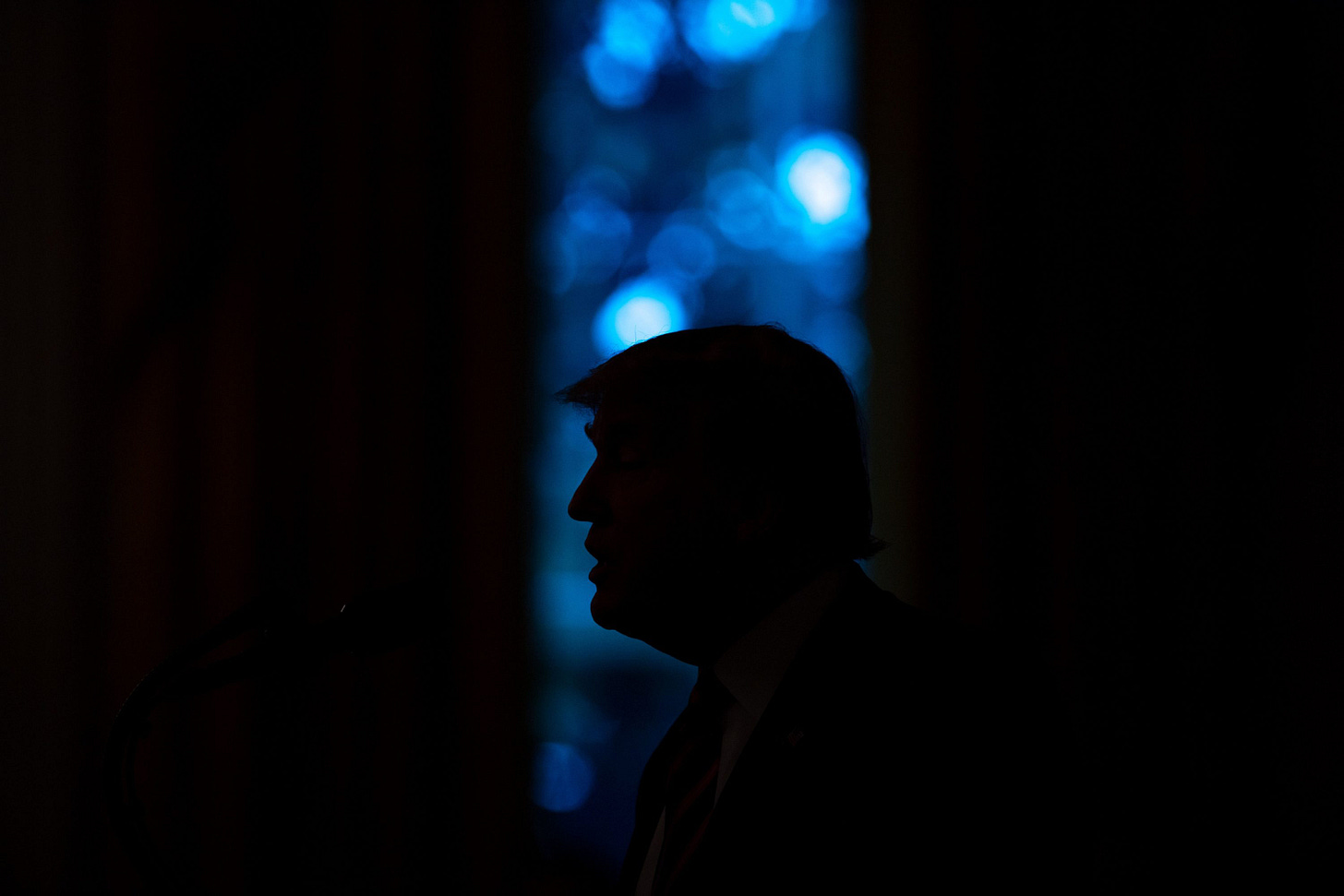
Trump and the 100,000
The president has a history of smearing and scorning the dead. So it shouldn’t surprise us that he is deaf to the rich American tradition of civic mourning.
It apparently wasn’t Stalin but the German-Jewish satirist Kurt Tucholsky who first said, “One man’s death: that is a catastrophe. A hundred thousand dead: that is a statistic.”
What does Donald Trump know of loss, remembrance, and statistics?
On Thursday morning, after the various trackers all showed the United States had surpassed 100,000 COVID-19 casualties, this came from the president’s Twitter account:

The message of “heartfelt sympathy and love” is welcome. But it’s worth noting how it clashes with the tone and substance of the president’s previous messages. Here, for example, is another tweet from the president, from two days earlier:

That tone of ranting defensiveness and indignation is the norm for Trump. And on the substance: Is “100,000 plus” really a number to be proud of? America has now suffered 28 percent of the world’s coronavirus deaths, despite having just 4 percent of the world’s population. It is brazen, if not misleading, for the president to congratulate himself on a job well done. Those 100,000 deaths represent a potentially endless web of familial bonds. Each individual may have left behind a spouse, children, parents, grandchildren, siblings—the list goes on.
Presumably not wanting to be seen as so insensitive and foolish as to shrug off the almost unimaginable number of human losses, the president followed up that Tuesday tweet with a platitude—“One person lost to this invisible virus is too much,” one of Trump’s favorite clichés, and strangely inappropriate when talking about a disease. But even that was just prelude to typically Trumpian defensiveness and deflection.
The dead seem not to matter to the president, except when he thinks a show of sympathy is to his advantage. This should not surprise us: Trump has exhibited an aching lack of respect for deceased Americans and their families throughout his presidency—including a willingness to use them for political gain, whether they are veterans, politicians, or ordinary citizens.
Remember Humayun Khan? At the height of the 2016 election, Trump mocked the parents of the fallen soldier, who had been killed by a car bomb in Iraq in 2004. Khan’s parents appeared at the Democratic National Convention in opposition to then-candidate Trump—Khizr Khan spoke as his wife Ghazala stood by his side. In response, Trump insinuated that Mrs. Khan had been silenced. “Maybe she wasn’t allowed to have anything to say. You tell me.” The implication was that because of her cultural and religious background—as a Pakistani-American and Muslim—she was not granted permission by her husband to speak at the convention.
Despite widespread outrage as a result of Trump’s scorn—this was back in the day, long ago, when Republicans still spoke up against him—he simply would not relent. In an interview with the New York Times, Trump said: “I’d like to hear his wife say something.” There is no other way to square it: Trump used the death of a fallen soldier to bolster his credentials as a critic of Islam. Breitbart followed his lead in a headline, smearing Khizr Khan for supposedly believing that the Constitution “must always be subordinated to the Sharia.”
Trump benefited from disrespecting the dead and their mourners as a presidential nominee. He continues to use the same tactics, as in his recent conspiracy-mongering about Joe Scarborough and the late Lori Klausutis, which Charlie Sykes wrote about in a moving newsletter earlier this month. Klausutis’s widower’s plea that Twitter CEO Jack Dorsey take down Trump’s tweets is equally harrowing. Even in these strange times, it is unsettling to read a letter of complaint about the president of the United States addressed to a businessman.
At least for the sake of the decency of our public discourse, we should not allow ourselves to become desensitized to Trump’s rants about the dead.
A leader in this time of crisis might do well to look to America’s culture of national remembrance, a mark of distinction compared to other western democracies. Even in times of conflict America has paused to memorialize the dead and show gratitude for their sacrifices. The first ceremony for Memorial Day—known then as Decoration Day—was observed in 1868. Future president James A. Garfield, then a congressman for Ohio and previously a Union major general, addressed the crowd at Arlington National Cemetery. He opened by recognizing the limitations of his words. “If silence is ever golden, it must be here beside the graves of fifteen thousand men, whose lives were more significant than speech.”
COVID-19 is not a military conflict. However, as Jonathan V. Last reminds us, few events other than war can compare to a tragedy of such scale. More Americans have now been killed by COVID-19 than in Vietnam and Korea combined.
But amidst all this loss, we lack a president with the ability to engage with—let alone articulate—America’s exceptional culture. He seems to think of the victims of COVID-19 merely as statistics that threaten or aid his reelection prospects. There is no mourning, whether in silence or speech. The public, civic aspect of our grief is entirely absent.










